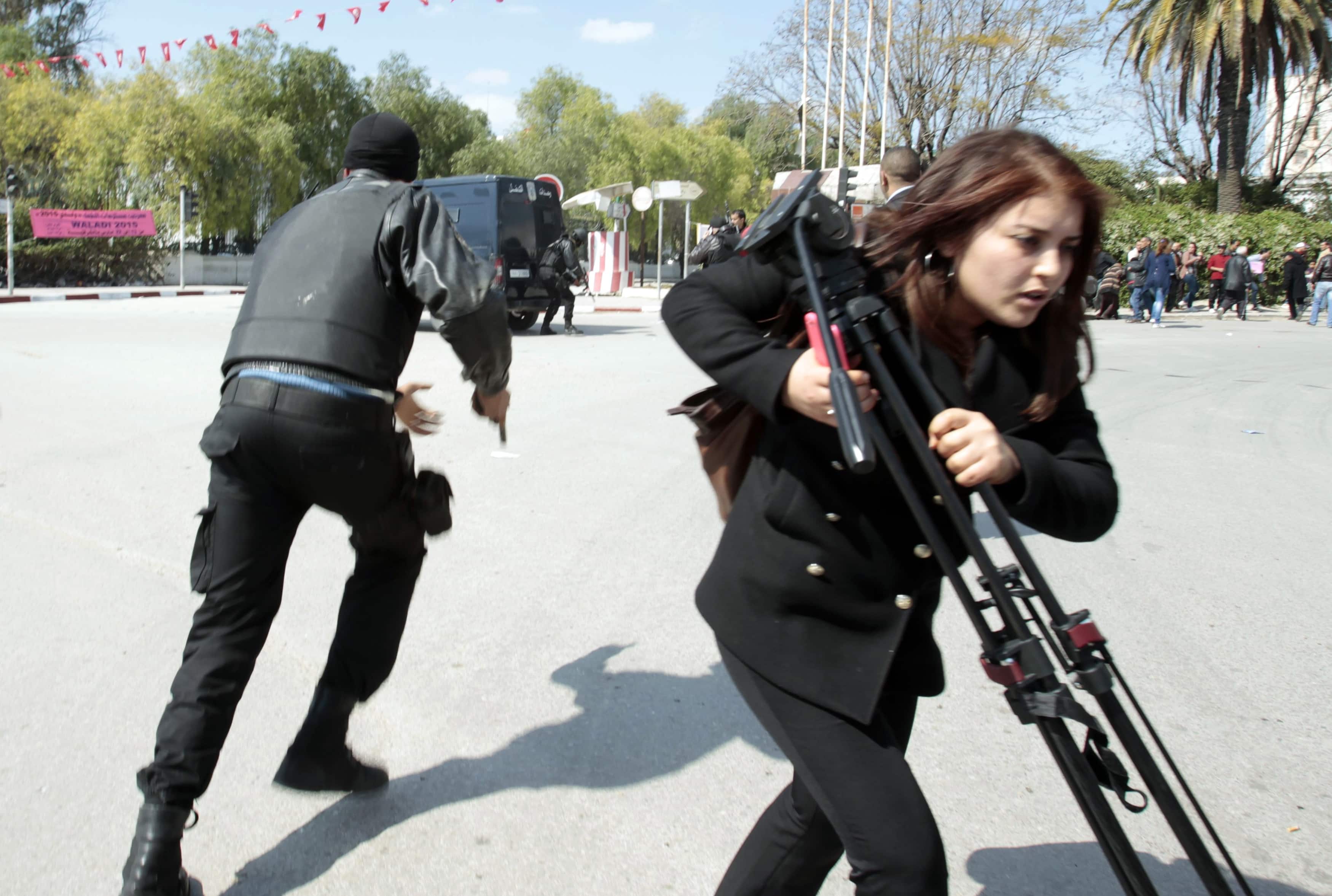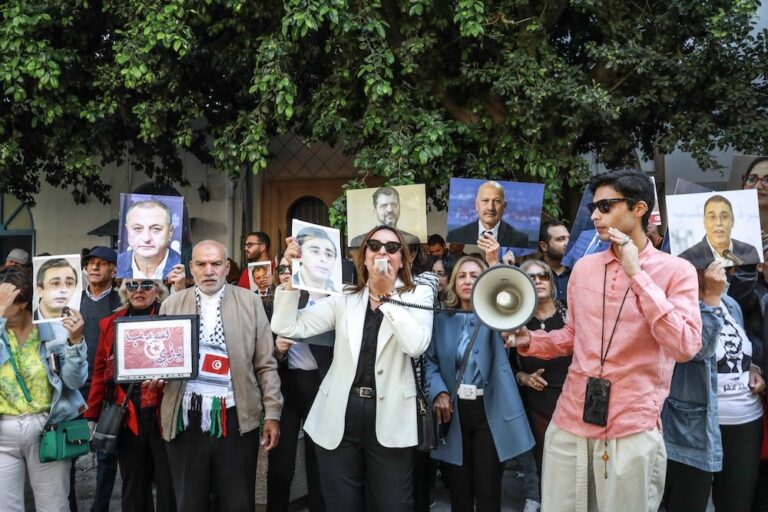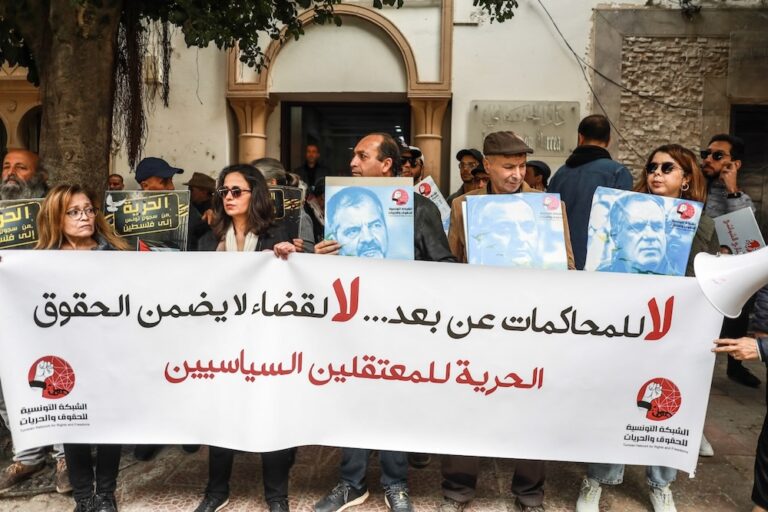Hard-earned press freedom in Tunisia is under threat as journalists are squeezed between violent extremists and security services sensitive to criticism in the wake of deadly terror attacks. While Islamist militants threaten the media, the government introduces restrictive legislation and security forces legally harass and even assault journalists.
The following is an excerpt from a CPJ special report by Safa Ben Said published on 27 October 2015.
Tunisia inspired the uprisings that swept across the Arab world in 2011. Today, it holds promise for achieving a stable democracy, while several of its neighbors have backtracked to brutal repression or become mired in armed conflict. The country overcame serious challenges through political compromise between secular and religious parties, facilitating the adoption of a progressive constitution in 2014 and the organization of free and fair elections. Tunisia’s civil society has fought vigilantly to preserve the gains of the uprising in areas of civil, political, and human rights, including freedom of the press.
But hard-won advances in press freedom have been eroded and are under further threat since two major terrorist attacks this year killed more than 60 people and increased fears over security. Since the attacks, the government—led by the secular Nidaa Tounes party, which triumphed over the religious Ennahda party in 2014 presidential and parliamentary polls—has introduced new legislation that could be abused to silence the media. Security services are sensitive to criticism, leading to legal harassment of critical journalists and even physical assaults and threats on those carrying out their reporting. Journalists are also subject to threats by Islamist extremists, leaving the press squeezed between terrorists and those who purport to fight terrorism—a common predicament for journalists globally, CPJ has found.
Click here to read the complete report.



